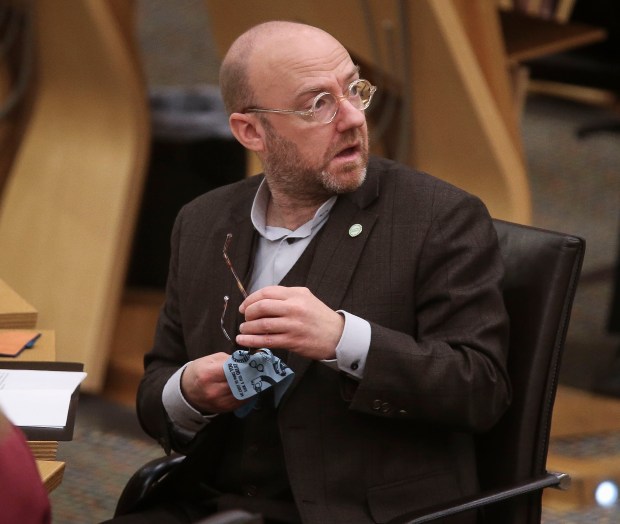The next Prime Minister, whoever they are, really needs to get a grip on the declinism and defeatism of the UK government. A case in point is the statement issued today confirming ministers have submitted their case to the Supreme Court in the referendum showdown with Nicola Sturgeon.
For those unfamiliar, the Scottish government intends to hold a referendum on independence next year, despite the Union being reserved to Westminster under the Scotland Act and Westminster declining to grant permission. So Sturgeon’s Lord Advocate — who isn’t herself convinced that her First Minister’s plan is lawful — will now argue before the Supreme Court that Holyrood doesn’t need Westminster’s permission to hold an ‘advisory’ referendum.
Westminster hopes the Supreme Court will uphold the conventional interpretation of the Scotland Act, and reiterates its position in this statement: ‘People across Scotland want both their governments to be working together on the issues that matter to them and their families, not talking about another independence referendum.
‘We have today submitted our written case to the Supreme Court, in accordance with its timetable. On the question of legislative competence, the UK Government’s clear view remains that a bill legislating for a referendum on independence would be outside the legislative competence of the Scottish parliament.’
Of course the legal motions have to be gone through but this statement only underscores how utterly weak and riddled with self-doubt this government is, both at ministerial and institutional level.
Here is an anatomy of that weakness. First off, ‘both their governments’. This is why, when New Labour set up devolution, it used the term ‘Scottish Executive’. From the Acts of Union until 1999, there was only one government in Great Britain and even in Northern Ireland, from 1921 until 1974, the terms used were ‘executive committee’ and later ‘executive’. When the SNP took control of Holyrood in 2007, they rebranded the Executive as ‘the Scottish Government’, a stylistic change rather than a legal one since the Scotland Act had specified an executive. Fortunately for the Nationalists, David Cameron came along, adopted their preferred terminology and changed the law to reflect it.
So now Scotland has ‘two governments’, something UK ministers pride themselves on pointing out as often as possible. Talking about ‘both’ of Scotland’s governments implies parity. The kingdoms of Scotland and England entered the Union as equal partners but Holyrood is constitutionally subordinate to Westminster, something Westminster would still understand if it hadn’t become so abjectly soft on constitutional affairs. You think it’s all so modern and progressive for Scotland to have two governments? Ask yourself which government is responsible for more day-to-day governing in Scotland. Ask which is more visible and more vocal north of the border. Ask which literally has ‘Scottish’ in its name. Now, which do you suppose Scots see as their primary government? Which do you think is more relevant to their lives? Which do you reckon commands their chief loyalty?
This is why the UK government, regardless of who leads it, regardless of which party is in power, cannot win against the Scottish government. The devolution system devised by Labour and expanded by the Tories not only facilitates separatism but encourages it by ensuring a permanent rival for political legitimacy in Scotland and rewarding its challenges to Westminster’s authority with further concessions. The UK parliament should recognise this risk and, at a bare minimum, re-designate the Holyrood administration an executive. Of course, this would require a Westminster political class that believes in Britain and ideally even likes it, so it’s unlikely to happen any time soon. At the very least, ministers should stop falling over themselves trying to give parity of esteem to an institution currently trying to rip the UK apart.
While we’re at it: no, Scotland doesn’t need both its governments ‘working together’. It needs the UK government to lead and the Scottish Government to focus on areas of devolved competency, such as health, education and transport. Far too much has been devolved and the settlement should be recalibrated to recover powers that ought never to have left Westminster. But until a government with the guts to do so comes along, the UK government should be finding ways to reassert itself as the primary government of all parts of the UK.
As for ‘the issues that matter’, as opposed to ‘talking about another independence referendum’, this is an issue that matters. The continued existence of the United Kingdom matters. This is a variation on the ‘now is not the time’ trope that beta Unionists deploy every time the Scottish Government tries to push secession. Rather than facing down a direct challenge to its authority — a challenge from an institution of the UK state, no less — Westminster prefers to plead for its enemies to hold their fire a little longer. A government forever on the defensive is bad enough, but this one is evasive on the question of whether the state it governs ought to be dismantled. These are people who cannot bring themselves to believe in their own country.
Finally, the government’s ‘clear view’ of what the Scotland Act says relies on the Supreme Court coming to the same view. Perhaps it will, but perhaps it won’t. If the justices throw everyone a curve-ball, all hell will break loose while the new prime minister is getting their feet under the table, the cost-of-living crisis rages, the UK faces the potential of energy blackouts during winter, the war in Ukraine roars on. A government with a clear view would not leave such a thing to chance. It would urgently amend the Scotland Act to put beyond all doubt that a referendum okayed by Westminster is the sole lawful means of Scotland seceding from the UK.
As I’ve pointed out before, more than eight in ten countries worldwide have constitutional provisions for indivisibility, either inhibiting or outright prohibiting secession. In most of these countries, the idea that the state should continue to exist is axiomatic among even the most radical or disaffected elements of the governing class. In the UK, it is a chore to convince even Conservatives that the country ought to be conserved.
Got something to add? Join the discussion and comment below.
Get 10 issues for just $10
Subscribe to The Spectator Australia today for the next 10 magazine issues, plus full online access, for just $10.




















Comments
Don't miss out
Join the conversation with other Spectator Australia readers. Subscribe to leave a comment.
SUBSCRIBEAlready a subscriber? Log in